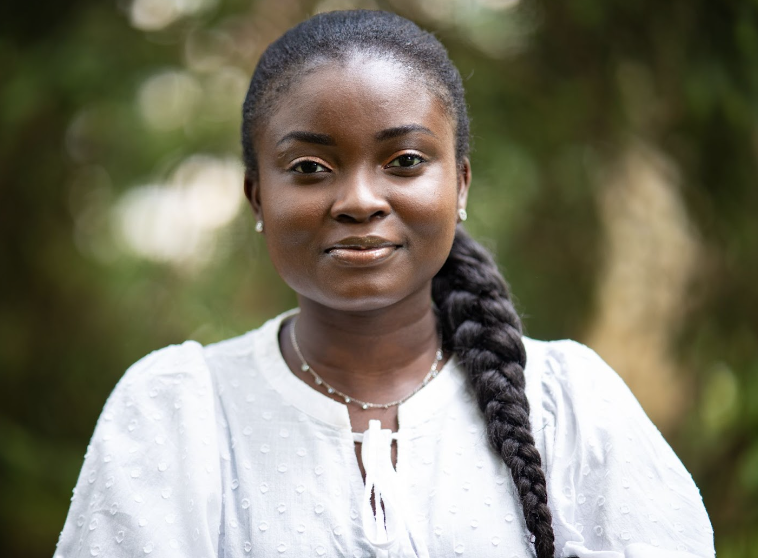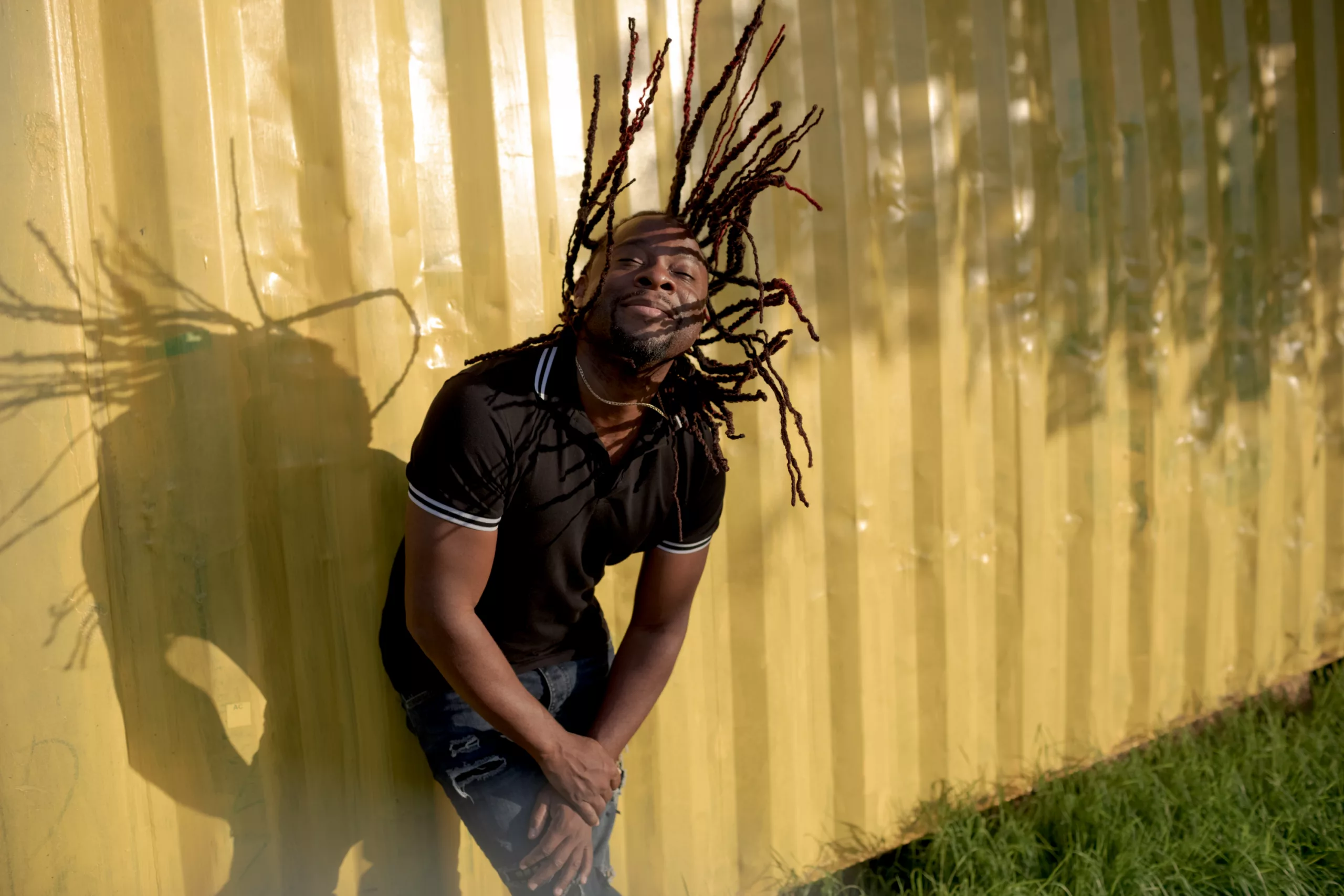As part of Documented’s new “Our City” interview series, we are speaking to prominent and influential New Yorkers who have deep connections to New York’s immigrant communities, some of whom are immigrants themselves. We ask them about how they made New York City their own, where they feel most connected to in the city, current projects, and more.
ANDREW CLARKE IS ABOUT to perform with The Braata Folk Singers on stage in Theatre 154 on Christopher Street in the West Village. It’s Wednesday at 6 p.m., and there’s only an hour before show time. It is the second week of a much anticipated debut performance of Braata’s off-Broadway run. The Caribbean folk singing group in New York City, which Clarke leads, is getting mic’d.
Moments later, his wardrobe supervisor Devyn Mackey walks up to him and says: “We’ve got a problem.”
Clarke’s mind runs through a million scenarios. Anything can go wrong in theater. Blown entrances, forgotten lines, technical glitches, a performer falling ill — you name it.
And Clarke knows it. An actor, performer, and singer, Clarke, 39, was born in Jamaica where he had made progress as an actor. He has an award nomination under his belt — Jamaica’s International Theatre Institute’s Actor Boy Awards nomination for Best Actor in a Lead Role, for James Baldwin’s “The Amen Corner” (a Jamaican adaptation).
He moved to the U.S. in 2006. In 2009, he left Florida for New York City, and that year, founded Braata Productions — a Caribbean cultural organization which brings Caribbean folk culture, music, stories, and theater performances to audiences.
This year marks the organization’s 15th anniversary, so Braata decided to take their production off-Broadway for the first time ever. For two weeks in the West Village, they performed their show, “The Braata Singers: Still Standing,” a medley of Caribbean music and folklore.
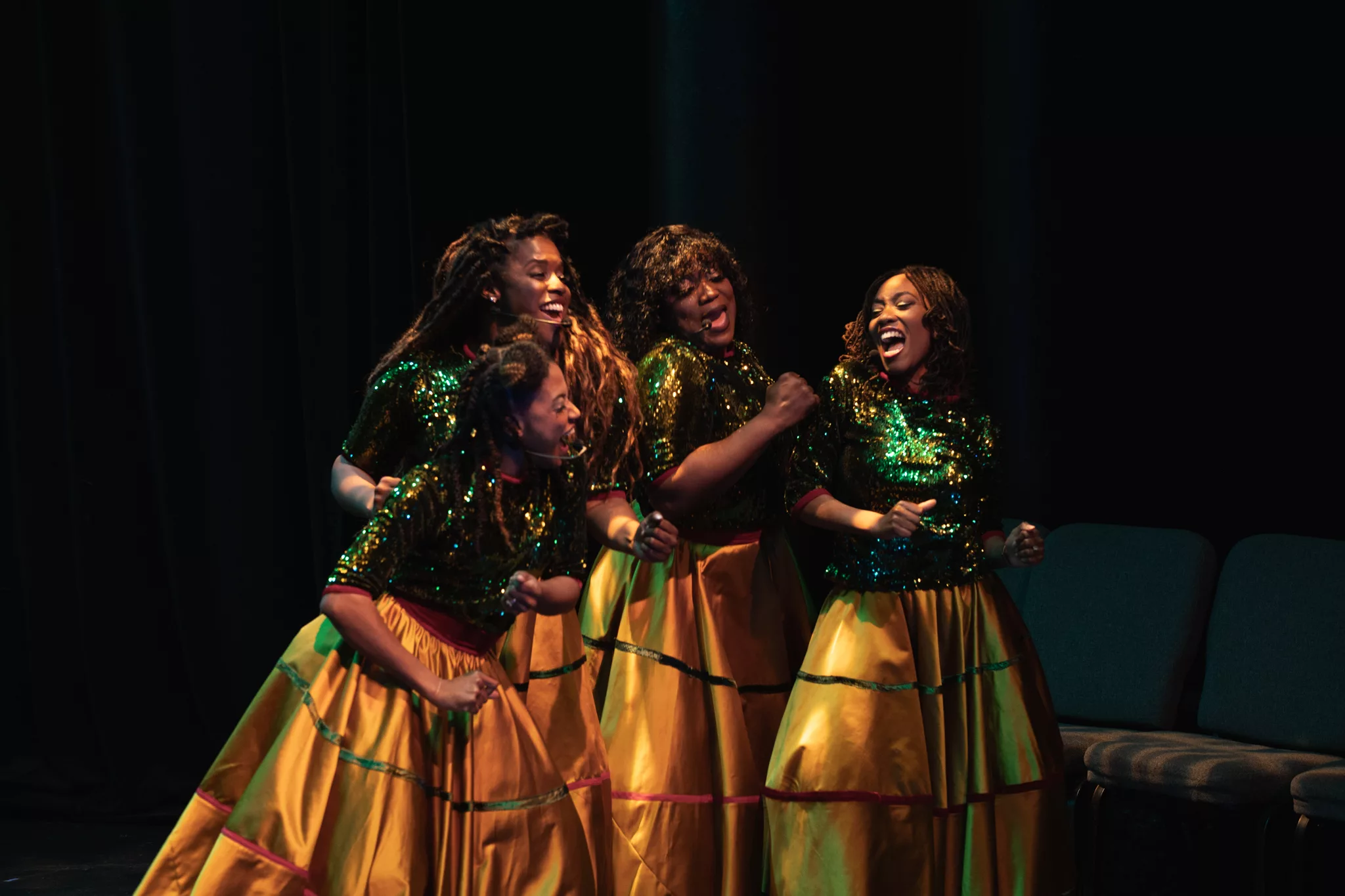
Braata’s two-hour performance weaves together melodies of cultural richness and diversity, exploring the rhythms and stories that have shaped Caribbean nations and their people. They also pay homage to the independence milestones being celebrated by the islands of Grenada, St. Lucia, St. Vincent, and Haiti this year.
This has been a milestone period filled with many highlights for Clarke and his team. But, upon reflection, Clarke — who acted in The Public’s musical adaptation of the 1972 movie, “The Harder They Come” — realizes he may have overestimated their chances of success. Like many of us in any situation, it’s easy to mistake how minuscule the probability of success really is. Braata launched a $100,000 fundraiser to help cover the costs of producing a show, but it only reached about a third of its goal.
When Wednesday’s performance arrived, Clarke was preparing to give the audience his best even though, at the back of his mind, he was also grappling with the fact that every night their operating deficit to produce each show was growing higher.
Then, Mackey walks up to him, and tells him the costumes have finally returned from the laundromat. That Monday The Braata Folk Singers performed the same show, “The Braata Singers: Still Standing.” With no shows the following day, they gathered their brand new costumes for the performance: for the women, a black sequin top paired with a gold maxi skirt made with satin and velvet, and for the men, black pants and button up long sleeve shirts. Then they sent the costumes to a laundromat on Tuesday in preparation for Wednesday’s show.
“I wasn’t worried because the laundromat was close by,” Clarke told me days later. “I was like even if they get it done at 6:30 p.m., we’ll still be able to get into the costume before 7 p.m.”
Mackey then tells Clarke to take a look at one of the costumes a Braata singer has put on.
Clarke was shocked.
“Totally destroyed,” he says. “When I tell you shrunken, disheveled, out of shape, we couldn’t wear it on stage.”
Can you describe how you felt when you saw the ruined costumes? How did you resolve the issue in time for the performance?
I was numb. It was the calmest I’ve been in what could have been a horrible situation. The clothes looked like something from a nursery rhyme. Like a peasant skirt from Hansel and Gretel. That’s all I can say. You know like when you meet the witch in the forest, and she’s wearing disheveled clothing. That’s what the skirt looked like.
[Laughs] Wow.
I didn’t have a response. At that point, an audience was going to be here at 7 o’clock. So we’ve just got to forge ahead, and we will talk to the cleaners when this is done.
So we put on clothes that didn’t look good, and the ladies weren’t happy. But the good thing is all of them were team players because anybody in that situation could have said, “I’m not going out on this stage looking this crazy.” They understood that this was just no fault of our own, clearly. The dry cleaners made a major error in judgment and the show had to go on.
I’m so sorry to hear about that. The way you describe it is hilarious. That’s tough. What happened subsequently?
When the show was done, my supervisor said, Well, clearly we can’t get these made by tomorrow, they can’t even be made before the end of the run. It’s another $5,000 we do not have. We were already in a deficit going into the show. Even if we sold out entirely, we would have been in a deficit of $20,000. That’s why we needed to fundraise. But the audiences were so low that the deficit was continuing to grow every night. We didn’t get a full audience. It’s almost like it was growing by $7,000 every night, literally. So there was no entertainment of, like, we’re gonna get new costumes.
I said, here’s my personal credit card if we can shop to find something. He went on the road all day on Thursday and he bought some stuff. We tried to make magic out of nothing. That was one of the inspiring things coming out of our off-Broadway run.
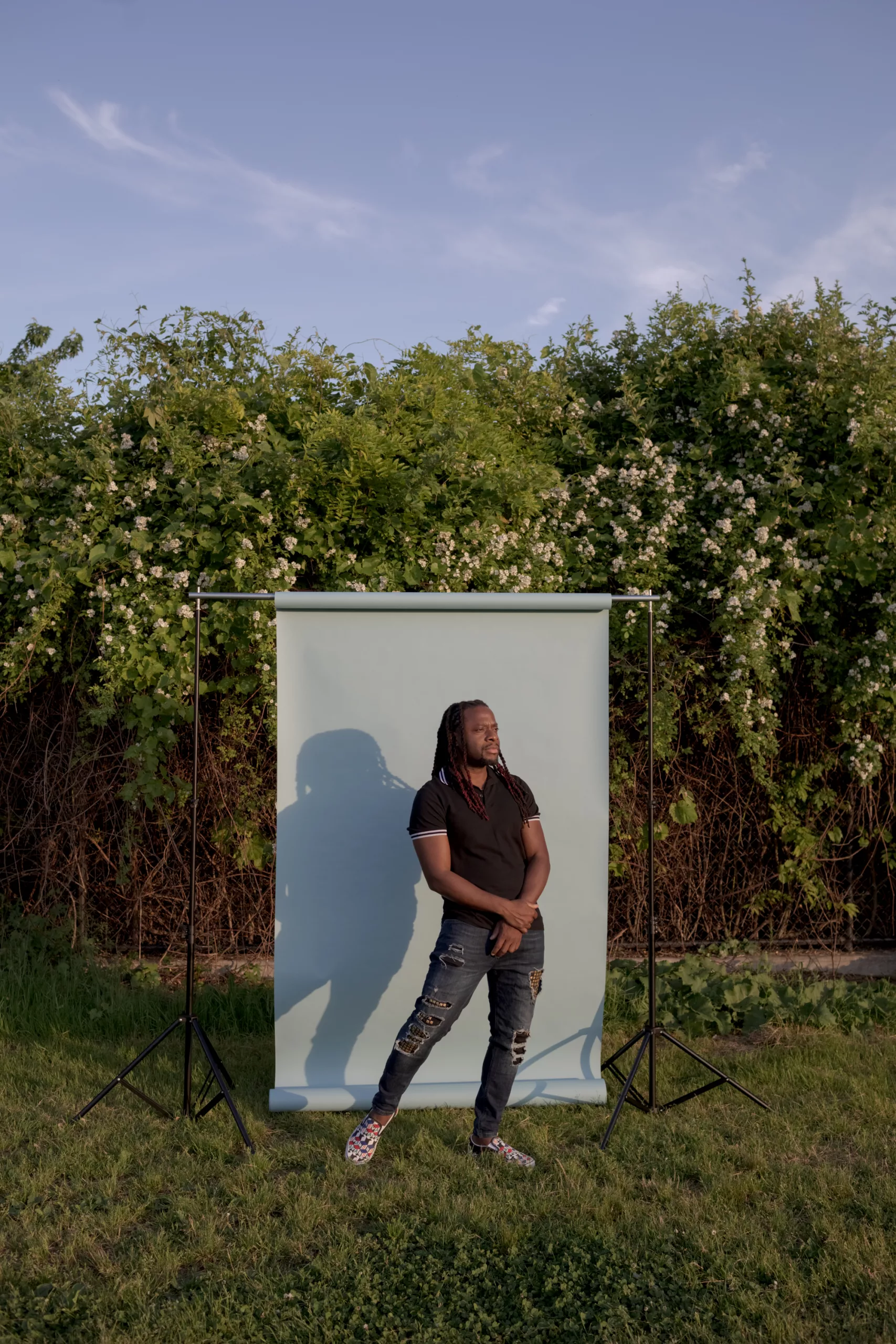
What in “Still Standing” is evidence of your growth now at year 15 compared to year 1?
The vocals. I’ve never had a show where every single person on the stage got a solo. Everybody on our show was as gifted a soloist as they were an ensemble member. There are some songs we tackled in this performance that we would have never dreamed of tackling five, 10, 15 years ago.
My colleague, Melissa Noel, who edits our Caribbean communities vertical at Documented, tells me raising money for the arts has always been a challenge in the communities. People love the shows and entertainment but sometimes don’t want to pay the worth of creatives. But there’s so much that goes into performances: rehearsals, costumes, transportation, and then wages. Can you speak about the challenges of support for the creative arts within the communities when it comes to booking events and how you’ve dealt with it?
It continues to be a challenge. I just had two conversations in the last day or two about the costs for the group to perform at a party. When I told them the rate, they went, “Oh, my gosh, that’s expensive.” Oftentimes, folks in the Caribbean see art as something that you do for fun; it is not a job. I’ve been told in the past that you should be happy to do it for the culture. Actually, a staff member of an elected official said that. It’s almost like they were saying, why do you want to get funding, you should be happy to be representing the culture. And I’m left thinking: but art is like everyone else. We have bills. Never mind all the production elements. As people, we’re still human beings giving up our time.
It takes cash to keep culture alive. This is really what it takes to keep high quality art. Part of the reason people love Broadway is because they have a big budget. That’s why the show is spectacular. None of that is free.
“It takes cash to keep culture alive.”
Have you found anything interesting about the way people interpret you and your work since moving to New York?
The Labor Day parkway [West Indian Day Parade Carnival] is considered one of the things that is definitive about Caribbean life, but that’s contemporary Caribbean life. You find that folks don’t often revere, respect, or honor any traditions that are not contemporary. That’s been one of the responses to our work, it’s like, Uhh, it’s okay, but it’s kind of like for old people.
But then there are others — older people, seniors or golden agers — they revere this and they’ll say to you, having watched a production: “Thank you, thank you for reminding me of home, thank you for reminding me of my mother, or my time spent with my grandmother.” For me, that is also a really powerful takeaway.
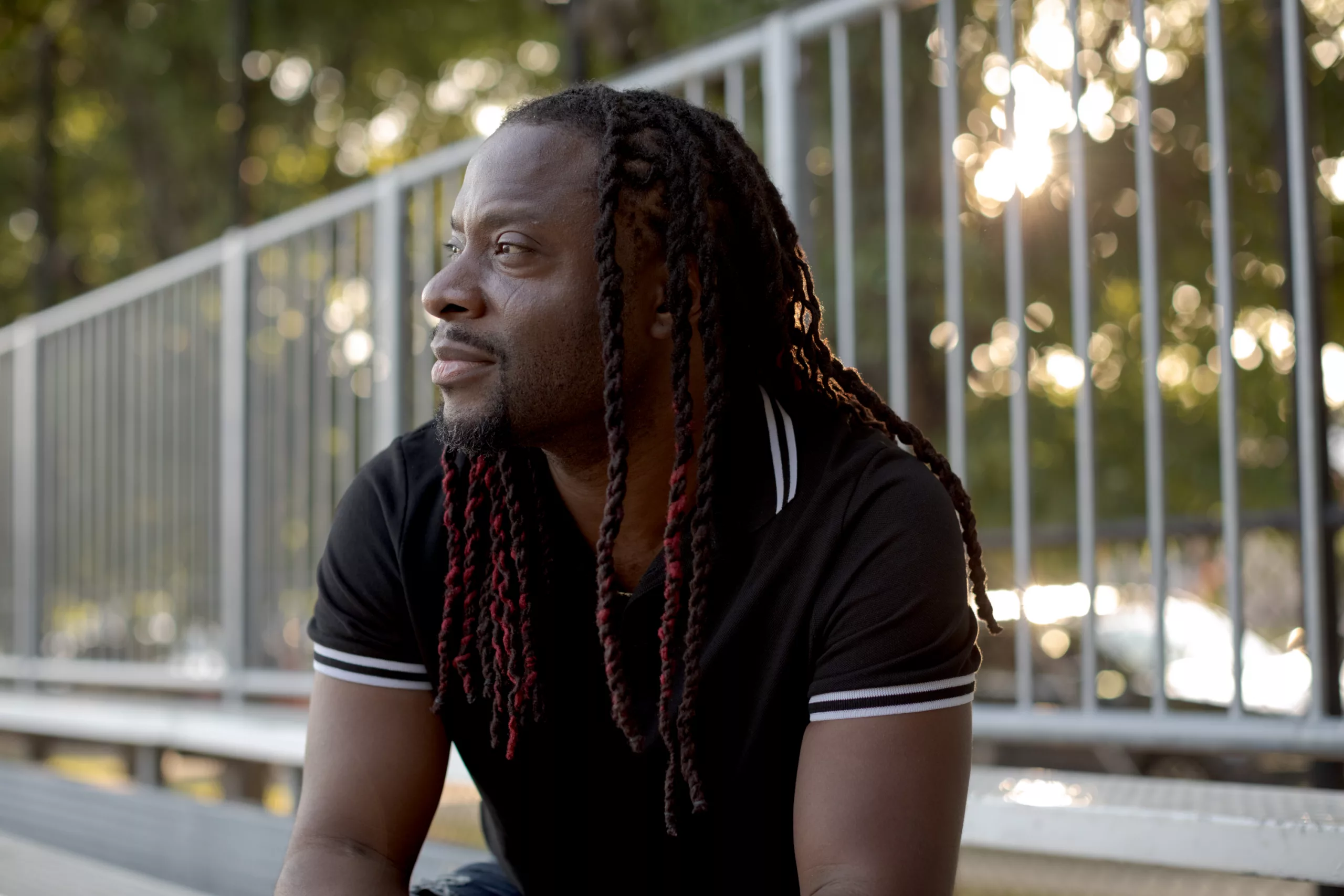
I wonder if it’s a cause of concern for you that Braata might be losing the younger generation.
It definitely is a concern. But I think we’re clear on what our mission is: preserving a part of our culture that, admittedly, may only be relatable to a particular demographic. However, the way we’re trying to bridge the gap between the traditions of the older generation and younger generation is in our work in after-school programs. We’re teaching this art form to young people in hopes that they can develop an appreciation and love for traditional art and folk culture.
“Hey, I’m introducing you to this thing that is a part of home, you’ve never been to Jamaica, or Grenada, or we’ve never taken you home to Guyana. But this is a slice of home.”
Of course, yes, we’re teaching some dancehall and some reggae, but using that to also bridge the gap and say, Hey, I know you know this particular song from Dancehall or reggae, but did you know that this is where this particular song came from?
With our show productions as well, parents and grandparents bring their kids and grandkids, just to say, Hey, I’m introducing you to this thing that is a part of home. You’ve never been to Jamaica, or Grenada, or we’ve never taken you home to Guyana. But this is kind of a slice of home, this is what I grew up on.
In its early days, Braata’s focus was on Jamaican audiences, then eventually, other Caribbean communities. Was it because you realized that in NYC, people from those islands weren’t being served?
It was definitely one of the very conscious decisions. It was a way of diversifying our audience. Let’s say we have 800,000 Jamaicans — and I’m just calling a number here — maybe only 10% of them are interested in this sort of work that we’re doing. But if we can get 10% of people from all these other islands, and bring us under one roof, then our reach grows exponentially. The other very conscious thing was that all the other islands are significantly underrepresented. This was an opportunity for us to create what I now call a pan-Caribbean experience, which is oftentimes not done.
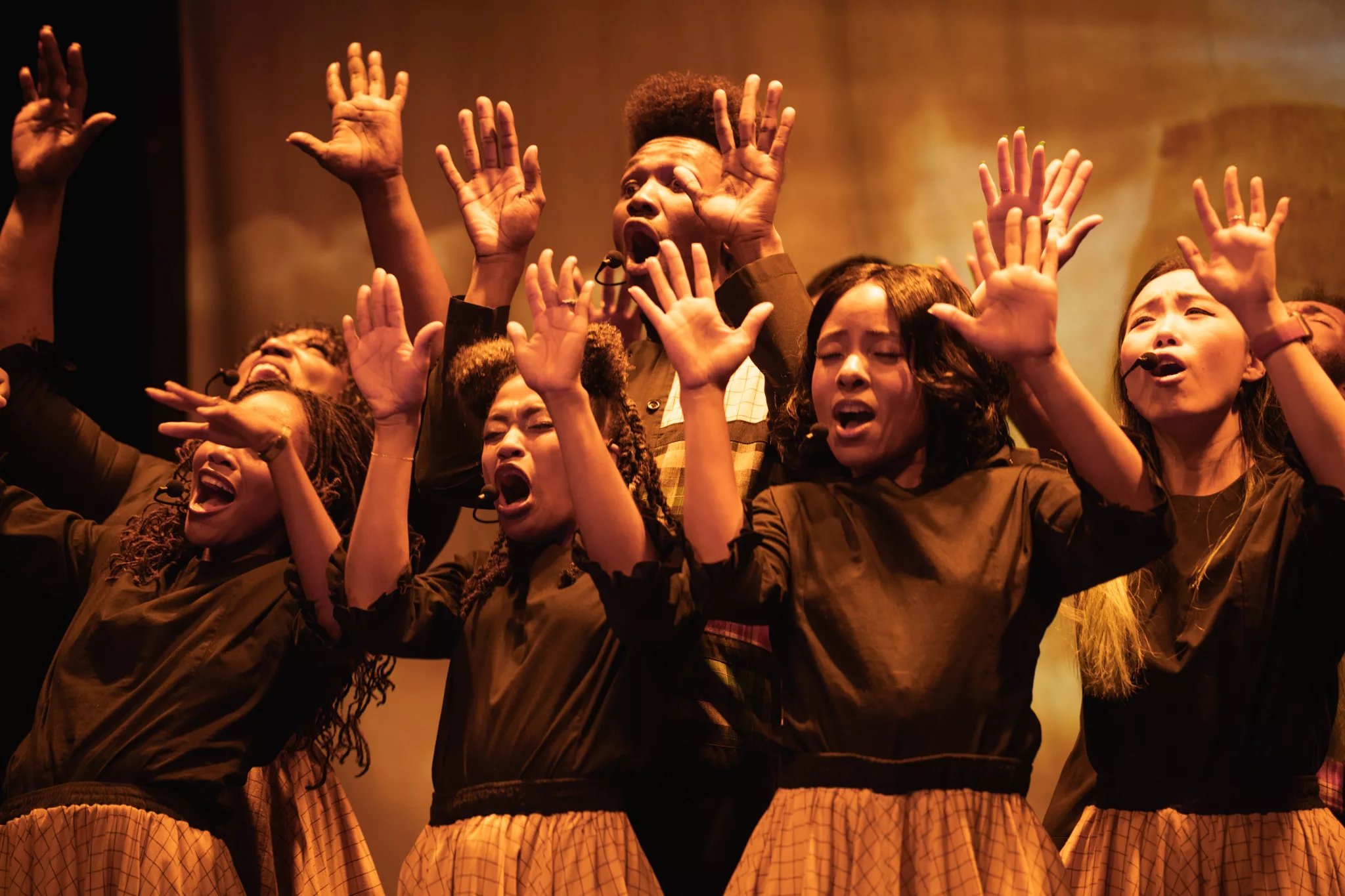
My favorite songs from the show were “Who have the medicine?” It was theatrical. A performer appeared in the midst of Braata Singers, began dancing and gave you all healing “medicine”. I also enjoyed “Better Woman Than You,” because it was a hilarious fighting scene between two women fighting for one man. “Dafus gone” was moving; a woman’s husband had died in the army and her friends consoled her. Can you tell me about the decision to perform these songs and the stories behind them?
This show was a mix of two kinds of realities. We were celebrating Braata Singers’ 15th anniversary as a performing ensemble. We’ve normally done an annual concert season, so we took some of the most popular songs from that experience.
We also had to acknowledge the fact that we’re celebrating the milestones of some Caribbean islands. For example, “I love you St. Vincent” is a song from St. Vincent and the Grenadines, the medicine song is called “Ah You Madda” and it has been one of our favorites over the years. “Better Woman” is a compilation along with “Marjorie,” which is a song from Grenada. So St. Vincent and the Grenadines, and Grenada were islands we wanted to highlight, as well as Haiti, which explains ‘Haiti Cherie.’
Last year, the island of Dominica was celebrating 45 years of independence. They have a popular form called Bouyon. So we decided to include a Bouyon song from there as part of celebrating their 45th year of independence. This goes back to that idea of uplifting the lesser known forms from other Caribbean islands.
“Thank you, thank you for reminding me of home, thank you for reminding me of my mother, or my time spent with my grandmother.”
You said your dad traveled to the U.S. to see the opening gala on May 2. Did he see the debut show too? What did he say, what were his thoughts?
Definitely pride. He was proud of my achievements and the quality of the production. Very pleased with that.
That’s sweet. Do you have other highlights from the show?
We had one of our sold out nights with an organization. Then, they came back with 25 people. They brought a whole other crew. I had a friend from Toronto, Canada travel here to see the production. He was like, I wasn’t gonna miss this for the world.
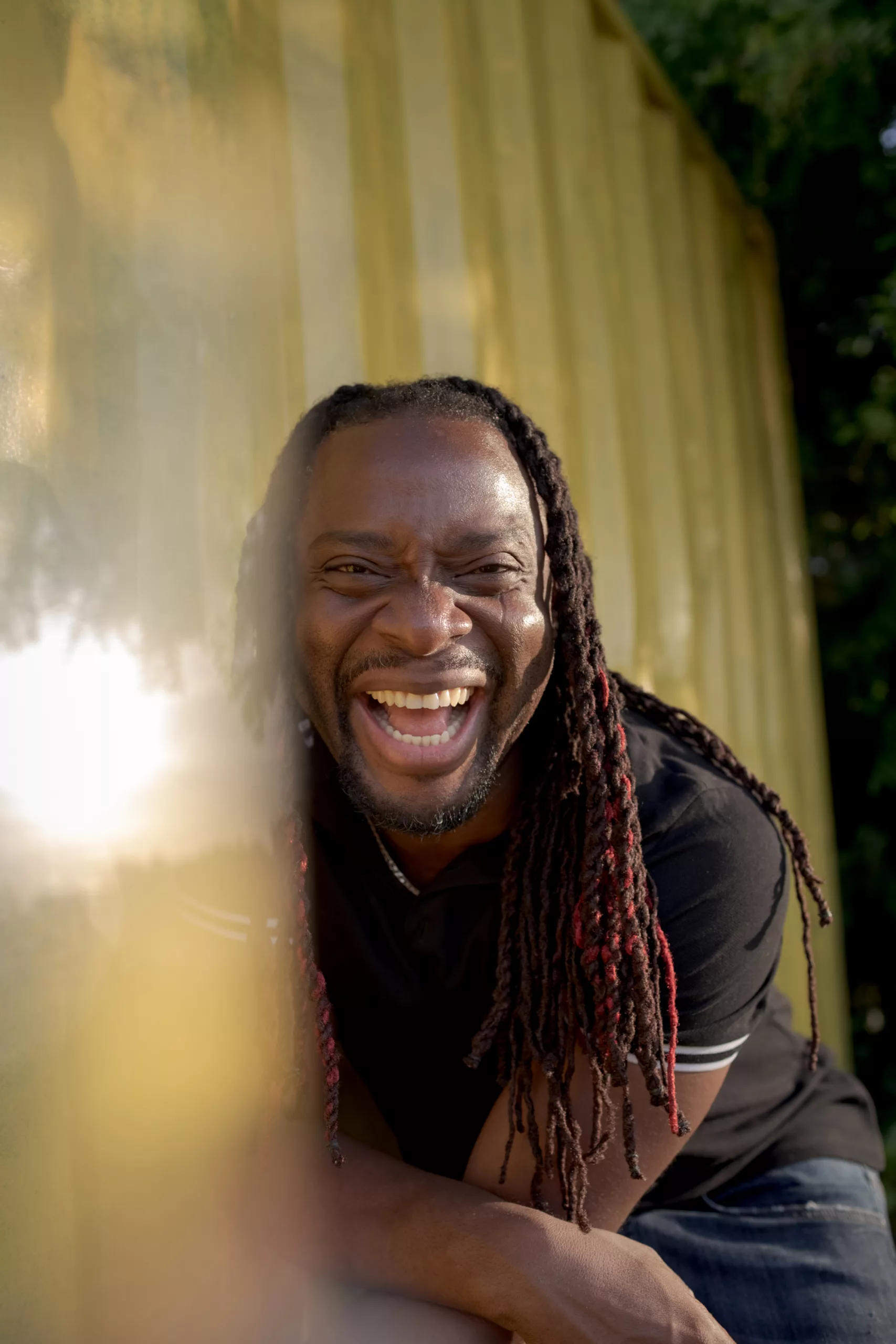
How did you manage to keep your team motivated, seeing empty chairs on low audience days, while feeling the burden of it yourself?
I learned coming through theater as an actor, you perform, and give the same amount of energy to an audience as you would to an audience of 100.
I remind my performers that they’re just as deserving of the same level of a show, whether we’re performing to an audience of five, 500, or 5000, you’re always giving 110% because they’re deserving of that. To not have an audience to enjoy all of that hard work is always tough to process.
Having been in the arts and performance industry in the U.S. for 18 years, are there specific things that you’d like to see done differently?
One of my biggest pet peeves as a Caribbean person is authentic representation of characters. Too often do I hear fake Jamaican, Caribbean, accents, on stage and in movies, in film. That just needs to stop.
They often cop out and say, well, people won’t understand and so on. Nope, do the work, find the actors; they’re there. Or, get good accent coaches, hire the people that speak the language to help shape those characters so that they can look and sound like the people they’re representing.
Agreed. What’s next for you and for Braata?
The next thing is rest, my dear. Gosh, if I can get some rest, that’s the first thing I should say. I’m a workaholic. So I’m always working.
I’m already talking about the 2024/2025 season. Our season runs July through June, so we’re coming to the end of our annual season. Each year, the show has a new theme.
We’re already talking with some possible partners to be like, listen, we cannot afford another off-Broadway run that doesn’t do well. We can’t afford to lose another $100,000. So let’s talk pretty early about how you can help us sell some of these seats.
What was the reason you decided to do an off Broadway debut in the first place? Might you have suspected that people would patronize enough of the tickets to attend the show? What was the kick?
You’re actually saddening my heart when you ask that question. Here’s why. I thought more of my audience and of Caribbean people (that they would have shown up in their numbers), and they have disappointed me in a major way.
[Laughs] I’m sorry to hear.
No. Because I was a part of the cast of the “Harder They Come” off-Broadway at the Public. We were sold out every single night. For four weeks. I think we even extended it to six weeks. When I saw that, I thought, Wow, if we build something off-Broadway, people are going to come. As you can see, they didn’t come.
I was hoping that a shift to going off-Broadway for our people would have been another way of them saying, Oh, we’re seeing ourselves in mainstream theater. This is not just another Braata singers concert at a local church or a local Performing Arts Center. They’re going off-Broadway, I need to go see them. Don’t get me wrong, they’re definitely folks that did that too.
That’s a hard thing to reckon with. Part of the healing process is also complaining, moping, and venting. So that’s healthy.
Yes, yes, yes. Just vent, get it out, and then say, okay, I’m gonna brush myself up, wipe these tears, and we’re gonna learn from this experience, and do better next time. I’m not gonna be defeated, I’m not going to be deterred by the lack of support. I know without a doubt we did something good. We made the right decision. I don’t regret having done that.
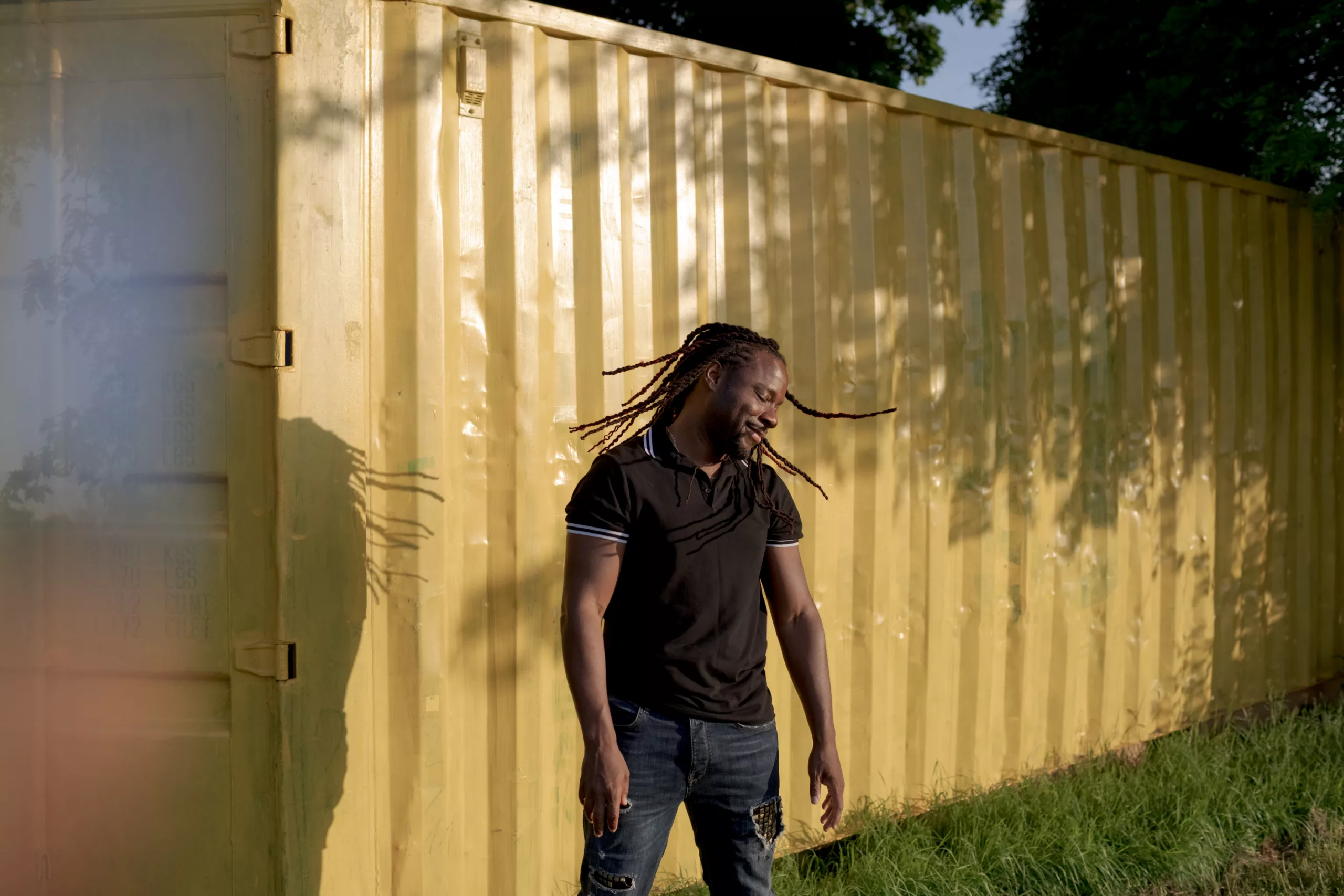
You’ve already told me a funny story for this Q&A about the laundromat. But we typically ask our interviewees of this column about something weird or interesting that’s ever happened to them on the New York City Subway, streets, or something that just felt so typical of New York.
This happened just two days ago. I’m in the bank with our admin associate. We’re standing in line, and we have a box in our hands, which is our front of the house box, which has pens and stuff. Supplies, really. Kinda like a storage box. But it’s something you can hold in your hand. It wasn’t big.
We are standing in the line of the bank, and this lady comes up behind us and goes, “Are you standing in line?” I was so exhausted. I was just laughing. I was like, No, we are here as decoration. We’re not standing in line. We’re just decoration in the bank. Yes, ma’am. We’re standing in line. So that was the first thing. But it gets weirder.
Then, she goes, “So what’s in the box?” Excuse me, ma’am. Excu…that is none of your business — is what I was thinking in my mind. Obviously, I didn’t say that. We just laughed about it. But I was like, that is such a New York moment for some random stranger to just ask you out of the blue, what do you have in your box?
It’s interesting because New York is the sort of place where people don’t interact often. We don’t talk to each other. You’ll sit on the subway, and no one will make eye contact. This is sad, even though we laugh about it, sometimes. If somebody gets a heart attack, God forbid, or has some sort of medical emergency, people just look the other way. There’s almost this individualistic nature. Folks don’t say hello to each other. So, it was very unusual for this lady in the bank to just strike up a whole conversation and want to know what is in our box.
[Laughs] What did you say to her?
I did not answer her. We were just laughing about it. I think it is the most un- New York, New York thing. I am almost certain she’s a New Yorker that would have the guts to ask a random stranger, “What’s in your box?” [mimics voice]
“So when faith and courage is gone, I just look over my shoulder at where I’m coming from, and I find the strength to press on.”
Where in the city would you say that you feel most connected to?
Go on Flatbush on a dollar van. They’re small buses, smaller versions of MTA’s buses and run along a particular route. An MTA may come every 10, 15 minutes, but you will see a dollar van every three to four minutes. When you step on a dollar van, it’s like stepping into the Caribbean because we’re all sharing that space.
Certain places on Church Avenue in Brooklyn as well feel like Jamaica. The vendors, you hear people talking, and it’s like, Oh, my God, I could be home. Certain parts on Jamaica Avenue in Queens, as well, feel like a slice of home.
I once interviewed a Trinidadian, Christine Lewis, who nannies kids in the city. She also leads an organization fighting for the rights of domestic workers. When I watched “Still Standing,” it brought something she said back to mind, especially the part of the show that has to do with perseverance.
“When I go into somebody’s home,” Lewis told me. “I am more than they could actually pay for really, I come with my teaching, music ability, acting and all the skills I possess. When we as women, Black Caribbean, women of color, and immigrants, do our homework, we don’t get the pay, but we do the work like we are praying to God.” She essentially said work is sacred.
Braata’s performances felt like people taking pride in the amount of work and joy they put into labor. I wonder if the performances were a sort of tribute to immigrants’ work experience?
Absolutely. When we started the process, I said to the singers, and there’s a video on our social media that asks what does “Still standing” the phrase mean to you? They said different things.
“Still Standing” is personal. It’s personal for Andrew as a director, and to see where my company has grown. But it’s a metaphor for actors and anybody that has struggled or come from nothing.
What the songs talk about hint at that concept of coming here as an immigrant, having to work hard, and nothing is ever handed to you. You are busting your chops all the time to ensure that you make a good living and take care of folks back home.
In one of the songs that ends the first act, one thing leads to another and a woman is celebrating and sharing with those listening the fact that she’s coming from nothing. The first line is: “I never came out of any high tables.” It means that I was never born with a gold spoon in my mouth. I never came from wealth but I worked my way up. She says, “So when faith and courage is gone, I just look over my shoulder at where I’m coming from, and I find the strength to press on.”
I’m not gonna be defeated, I’m not going to be deterred by the lack of support. I know without a doubt we did something good.
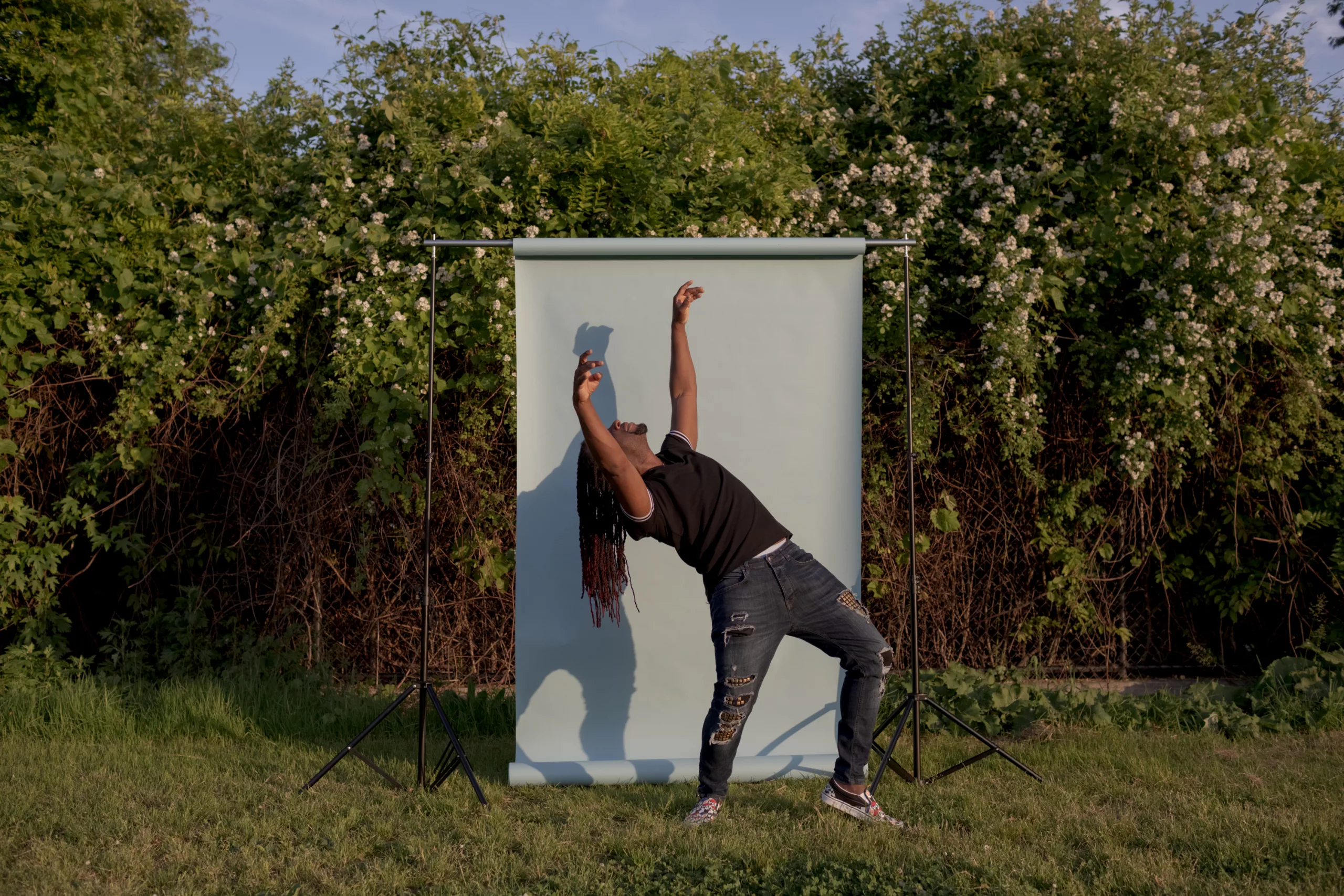
That is very powerful, and a beautiful note to end on. I’m curious, though, about your immigration story. Can you tell me a little bit about your move to the U.S.?
I moved from Jamaica to Florida, and oh gosh, it was a mix of a few things. My mother, just a few months before she passed away after a stroke, God rest her soul, she filed for me to become a resident. I’m the last of nine children, so I’m the only one that was still of age, under 21, that she could file for.
When I got the call that she passed away. I’ll never forget. It was my Voice and Speech final exam for my second year of college. Then the next year, it was mandatory, I had to move to the U.S. before I turned 21.
It was an interesting time because I had just gotten a movie released in Jamaica, I had a major ad on TV, I was in theater, I’d gotten an acting nomination for a major award. Things were really on the up and up for me as an actor in Jamaica, it was a weird time to leave and start over especially in a place like Florida that didn’t have a lot of opportunities.
I’m also trying to understand how mainstream traditional folk performance is in Jamaica. How did you learn the work that you do?
When I was growing up, this was more popular. The average child now doesn’t get the same level of introduction to traditional music as I did. But there is an agency called the Jamaica Cultural Development Commission (JCDC) and their mandate is the preservation of and showcasing of Jamaican culture.
A lot of schools are involved in this national competition. You start competing at the parish level and then you go to the regional level. Throughout that entire process, you’re learning. The art forms that you engage in are theater, dance, visual arts and drama, music, visual arts and dance, and you compete in traditional folk forms. It’s a way of passing on the culture to kids of all ages. That’s where I got my biggest introduction to the traditional culture of Jamaica.
